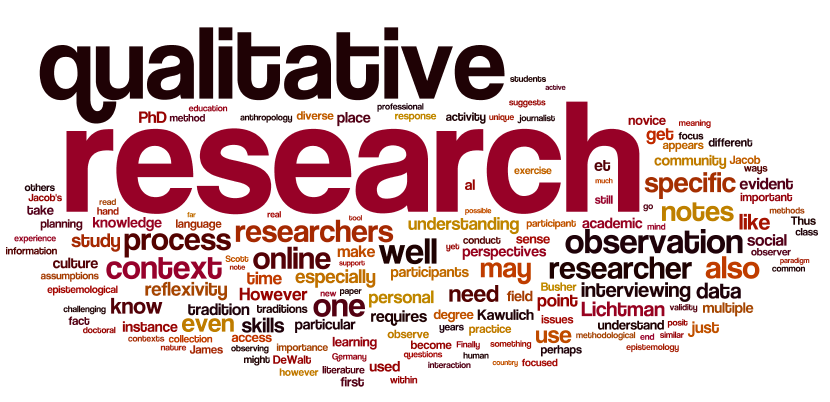
This is an introductory course designed for the individual with limited or no previous experience with qualitative techniques of data collection and analysis.
This course was formerly known as 'Qualitative Methodologies, Data Collection and Analytic Approaches'
The aim of the course is to give you accessible and comprehensive coverage of the current state of qualitative research, especially with regard to theoretical underpinnings, methodologies and techniques of both data collection and analysis. The course will combine lectures and practical 'workshops'. Time will also be set aside during the breaks for participants to discuss their own research.
The target audience for this course is those who would like to become more familiar with qualitative research techniques, from postgraduate university students and staff to researchers in government and private organisations.
Topics scheduled are:
Day 1
Introductory session. Outline of the course and identification of participants’ research interests and expectations. Framing. Theoretical underpinnings from positivism through post modernism to performative research. Types of qualitative methodologies. Issues of qualitative design: sampling; triangulation; validity and reliability and ethics.
Day 2
Interviewing. Casual and formal techniques of faceto face interviewing (access, rapport, recording, and types of questions). Data storage: transcribing interviews, preliminary data analysis, recursive techniques of data collection. Workshop on face to face interviewing. Group interviews.
Day 3
Focus groups and participant observation techniques. Workshop on running a focus group. Participant observation - usage, ethical issues and procedures involved. Workshop on participant observation and writing up observation sessions. Preliminary data analysis on interviewing and observation data.
Day 4
Data analysis: types of analysis during and after data collection. Workshop on thematic analysis and developing a coding system. Content analysis techniques and issues. Workshops on content and discourse analysis (cultural rather than linguistic).
Day 5
Computer management tools for qualitative data. Writing up data for different types of research: thesis, articles, and reports. Techniques of data presentation and display. Criteria for assessing good qualitative research.
This course will take place in a classroom. No equipment is required.
While most ACSPRI courses finish just before 3pm on the Friday, this course typically finishes around lunchtime. Time is generally made up during lunch breaks throughout the week (one-on-one consultation).
There are no prerequisites for this course
Other reading:
- Grbich, C., Qualitative Data Analysis London: Sage International, 2013.
- Grbich, C. New Approaches in Social Research. London: Sage Publications 2004
- Denzin, N., and Y. Lincoln, Handbooks of Qualitative Research, California: Sage,. various versions, various years of publication.
- Minichiello, V., R. Aroni, E. Timewell, and L. Alexander, In-Depth Interviewing: Researching People, (2nd ed), Melbourne: Longman Cheshire, 2008.
Q: Do I have to have had any qualitative or quantative research experience to do this course?
A: No, this is an introductory course and no prior knowledge is required
Q: Has the name of this course changed?
A: This course was previously known as 'Introduction to Qualitative Research Techniques' and 'Qualitative Methodologies, Data Collection and Analytic Approaches'
A good introduction to a method of research I know little about. A guide as to what I need to learn about and source to explore. Encouraging, informative, stimulating. (Summer 2019)
Fantastic mix of theory & practice. It really solidified the concept. (Summer 2019)
Course targeted my needs. I wanted practical information & strategies, insight into problems/problem solving (Winter 2017)
Great balance of presentation, discussions, small group work and hands-on activities. Lots of practical examples. I loved hearing about the instructor’s (Carol)’s own long & varied experience. (Summer 2017)
The data collection and analysis focusing on interviews and observation was highly relevant to my research. I'm currently running my PhD proposal and found the very helpful for study design development. (Spring 2016)
This course allowed me to get exposure & practice qualitative research skills. I particularly enjoyed the focus group scenario. (Summer 2016)
Carol was fabulous at using lecturer & class activities to explore concepts & reinforce content. The balance was great & effective for learning. (Spring 2015)
The instructor's bound, book length course notes will serve as the course text.
